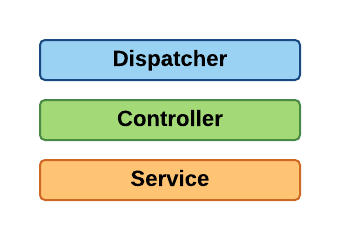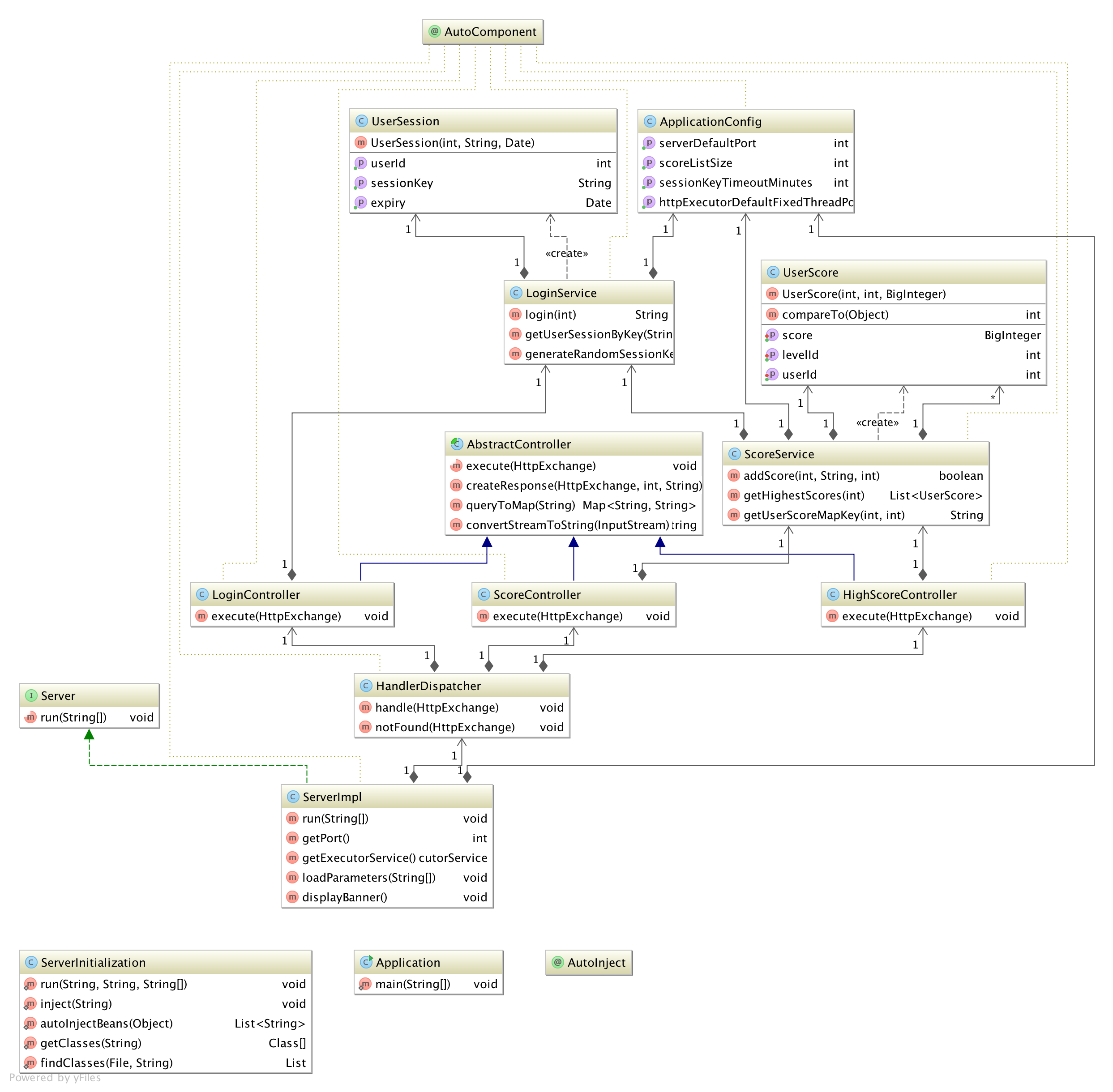Java application that keeps track of the user scores by level.
Prerequisites:
- Java SE Development Kit 8
- Apache Maven (tested with version 3.3.3)
To compile execute the following command from the root of the project:
mvn clean package
To run the application with its default configuration you can use the following command:
java -jar target/httpserver-scores.jar
Note: this works if the
jarfile is in thetargetdirectory.
To stop the server just Ctrl+c.
To customize the behaviour of the application the following parameters can be passed as arguments:
| Parameter | Values | Required | Description |
|---|---|---|---|
| port | An integer value. Port numbers less than 1024 require root permissions. | No | Port number on which the application will listen for requests. |
| executor | fixed or cached |
No | This parameter determines which strategy to use for HttpServer Executor, it can either be newCachedThreadPool or newFixedThreadPool. More info here. |
| poolSize | An integer value. | No | This only applies if fixed executor is selected. |
For example:
java -jar target/httpserver-scores.jar -port=8080 -executor=fixed -poolSize=10
| Value | Description | |
|---|---|---|
| Path | /<userid>/login |
Requests the creation of a new session key. The session key is valid for the amount of minutes configured in the server. A new session key is created every time the endpoint is called. |
| Method | GET |
|
| Response | <sessionkey> |
Unique string that represent the session. |
Example:
curl http://localhost:8080/100/login -> 1B4EB7BE47F046E98E1DC458B80B2D2C
| Value | Description | |
|---|---|---|
| Path | /<levelid>/score?sessionkey=<sessionkey> |
Method can be called several times per user and level. Requests with invalid session keys are ignored. |
| Method | POST |
|
| Request Body | <score> |
Integer number that represents the users score for the level. |
| Response | Empty response. |
Example:
curl -X "POST" "http://localhost:8080/10/score?sessionkey=1B4EB7BE47F046E98E1DC458B80B2D2C" \
-d "2500"
| Value | Description | |
|---|---|---|
| Path | /<levelid>/highscorelist |
Retrieves the high score list for a level. The list size is determined by the Application configuration. |
| Method | GET |
|
| Response | CSV of <userid>=<score> |
Comma separated list with user id and scores. |
Example:
curl http://localhost:8080/10/highscorelist -> 100=2500
The architecture of the application was made as simple as possible (following the KISS principle). It consists mainly of 4 layers.
- The Dispatcher is in charge of receiving the request and forwarding it to the appropriate controller.
- The Controller gathers the information that it requires for processing from the request and forwards it to the service.
- The Service applies the business logic to the received request.
The package com.oresteluci.scores.injection handles all the logig for automatic dependency injection.
Two annotations are used for this purpose @AutoComponent and @AutoInject.
The @AutoComponent is a class level annotation that indicates that this class should be instantiated for later injection.
The @AutoInject is a field level annotation that indicates that an @AutoComponent should be injected in this field.
Data storage and concurrency is handled by the Service Layer. Simple denormalized data structures were used to storage and fast retrieval. Maps are used to store key/value pairs, this structure was chosen due to the high performance in getting values given a key.
In the cases where data needs to be found by value, additional maps were added with these values as keys. In this cases when updating a value, two maps need to be updated and concurrency is handled by locks.
The following diagram shows the relationship of the classes:
The following improvements can be made to the solution:
- Removed expired session tokens with scheduler to reduce memory consumption. In the implemented solution tokens are created every time a login request is received and they are only deleted when a score post is made with an expired session key.
- More denormalization for better read performance.
- A distributed storage solution could be used to increase performace in response time and storage capacity, for example Cassandra.
- More Unit tests for better coverage.
The source code can be found in https://github.com/Oreste-Luci/httpserver-gamescores.

